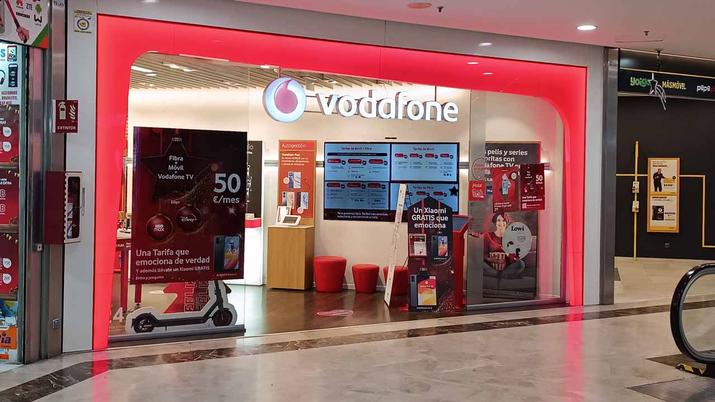At this point there are two operators that have 5G SA or 5G+ as their main asset. Vodafone was not one of them, but it is beginning to take its first steps into “real 5G” with the presentation of its new business initiative.
The red operator begins to test the progress and advantages of 5G Standalone. Will it finally reach its private clients or will everything remain in the realm of professional clients?
Vodafone begins 5G SA rollout
So far, the only operators in Spain that have decided to bet on 5G Standalone, which they have commercially called 5G+, have been Orange and Movistar (in that chronological order). Now Vodafone joins them, although with a huge asterisk on this.

The reason is that Vodafone is not going to integrate 5G SA for its customers, but has announced that it is going to do so in private network format (MPN, Mobile Private Network). The first business client that will benefit from this will be Ford, who will use it to optimize the processes of its production plant in Almussafes (Valencia).
According to the data provided by the operator, this novelty and new business collaboration will allow the vehicle manufacturer to “obtain early validation of components, functionalities and software thanks to the collection of information through still images or videos that will be processed with Edge technology on the network from Vodafone. This technology allows the application server to be brought closer to the network, so that latency is reduced. Thus, the system could stop the assembly line if an error is detected, minimizing the economic and environmental impact.”
Vodafone is working on this project together with five other companies. In addition to private capital, the financing of the project has also been supported by European Next Generation funds, which have financed 42% of this initiative through the Center for Technological Development and Innovation, dependent on the Ministry of Science and Innovation.
The evolution of industry 4.0
In order to get a better idea of how 5G SA can help increase productivity in a vehicle plant, for example, they say that through RPS (Radio Positioning System) techniques over 5G, time tracking can be carried out. actual components. Thus, the elements that travel from a supplier to the final factory can not only be geolocated, but other parameters such as temperature or humidity are controlled so that everything is in perfect condition. That same technique is later used within the factory itself, ensuring that nothing fails from storage to assembly on the assembly line.
 “We are proud to be part of this project along with six other companies with which we share the same desire for innovation. The project and our contribution to it are aligned with our strategy to position ourselves as a leading provider in Spain in private 5G SA networks,” explains Laura Galián, executive at Vodafone Spain.
“We are proud to be part of this project along with six other companies with which we share the same desire for innovation. The project and our contribution to it are aligned with our strategy to position ourselves as a leading provider in Spain in private 5G SA networks,” explains Laura Galián, executive at Vodafone Spain.
The design and implementation of 5G SA networks allows Vodafone to advance in the knowledge of the behavior of a next-generation network in terms of reducing service latencies of a traditional network, validation of computing architectures that allow work at the edge of the network, creation of applications based on Artificial Intelligence (AI) and real-time analytics of plant environment events.













